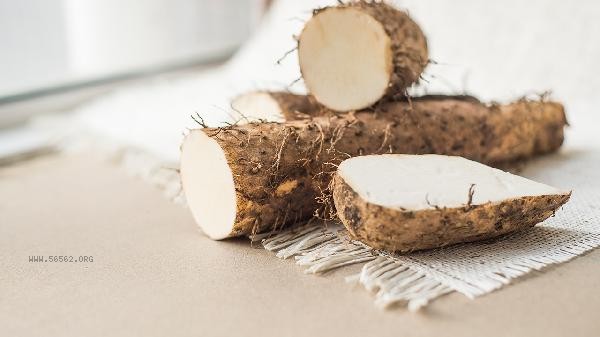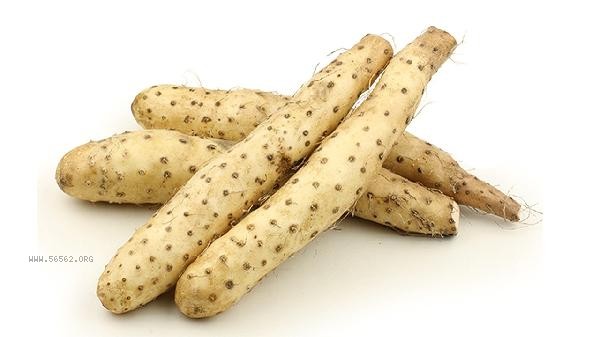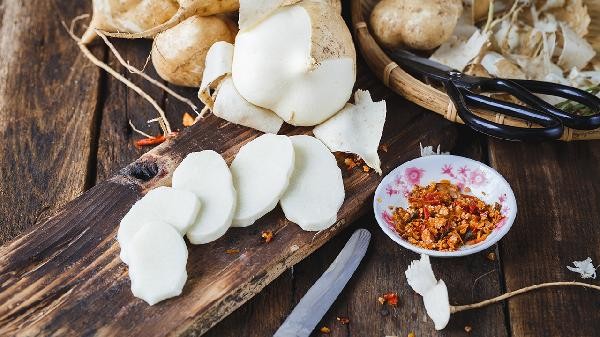It is generally not recommended to take yam for those with spleen and stomach deficiency and cold, those with excessive dampness, those with diabetes, those with allergic constitution, and those with qi stagnation and fullness. Although yam is a medicinal and edible product, some people may experience worsening symptoms or discomfort after consuming it.

1. Patients with spleen and stomach deficiency cold
Yam has a mild to cool nature, and long-term consumption in large quantities by patients with spleen and stomach deficiency cold may exacerbate symptoms of deficiency cold such as abdominal pain and diarrhea. This type of population often manifests as loss of appetite, hypothermia of hands and feet, and thin stools. If necessary, it is recommended to use ginger and red dates as warm ingredients to neutralize the medicinal properties. Traditional Chinese medicine can use Lizhong Wan and Fuzi Lizhong Wan, which are traditional Chinese medicines for warming and dispersing cold.
2. Yam is rich in mucin protein and starch, and it is easy to promote dampness and phlegm production when consumed by people with heavy dampness and abdominal distension. This group of people often experience symptoms such as thick and greasy tongue coating, heavy body fatigue, and indigestion. It is recommended to choose moisture reducing ingredients such as Poria cocos and Coix seed in their daily diet. For treatment, refer to traditional Chinese patent medicines and simple preparations such as Shenling Baizhu Powder, Xiangsha Liujun Pill, etc.
3. diabetes patients
have a high content of yam starch, with a glycemic index of about 58. Those with unstable blood glucose control need to strictly control their intake. It is recommended to choose varieties such as Huai yam and use steaming instead of sugar and vinegar cooking methods. It can be used in combination with Xiaoke Pill, Yuquan Pill and other traditional Chinese patent medicines and simple preparations with auxiliary hypoglycemic effect, but the dosage of hypoglycemic drugs must be adjusted under the guidance of doctors.
4. People with allergies

Yam contains allergenic ingredients such as dioscin, and some people may experience allergic reactions such as skin itching and redness when exposed to mucus. People with a history of food allergies should try a small amount of food for the first time, and stop immediately if they experience numbness in their lips. Acute allergies can be treated with antihistamines such as loratadine tablets and cetirizine hydrochloride tablets according to medical advice.
5. Patients with Qi Stagnation and bloating
Yam's nourishing properties may exacerbate Qi stagnation, manifested as belching and bloating, and should be consumed with caution. Such people should first recuperate their qi stagnation, and they can choose such qi promoting ingredients as tangerine peel and amomum villosum, or such qi regulating traditional Chinese patent medicines and simple preparations as Chaihu Shugan Powder and Muxiang Shunqi Pill. After the ventilation system is unobstructed, consume a small amount of yam as appropriate.
It is recommended to consult a traditional Chinese medicine practitioner for diagnosis and treatment before consuming yam for special populations. Healthy individuals should also pay attention to the principle of moderation, and it is recommended to control the daily intake of fresh products within 200 grams. Peeling during cooking can reduce mucus irritation and is easier to digest when eaten with grains. If you experience indigestion, you can drink hawthorn malt tea to relieve it. If you continue to feel uncomfortable, you need to seek medical attention promptly to check for other gastrointestinal diseases. Yam, as a health food, needs to be scientifically selected according to physical characteristics in order to achieve the best effect.










Comments (0)
Leave a Comment
No comments yet
Be the first to share your thoughts!